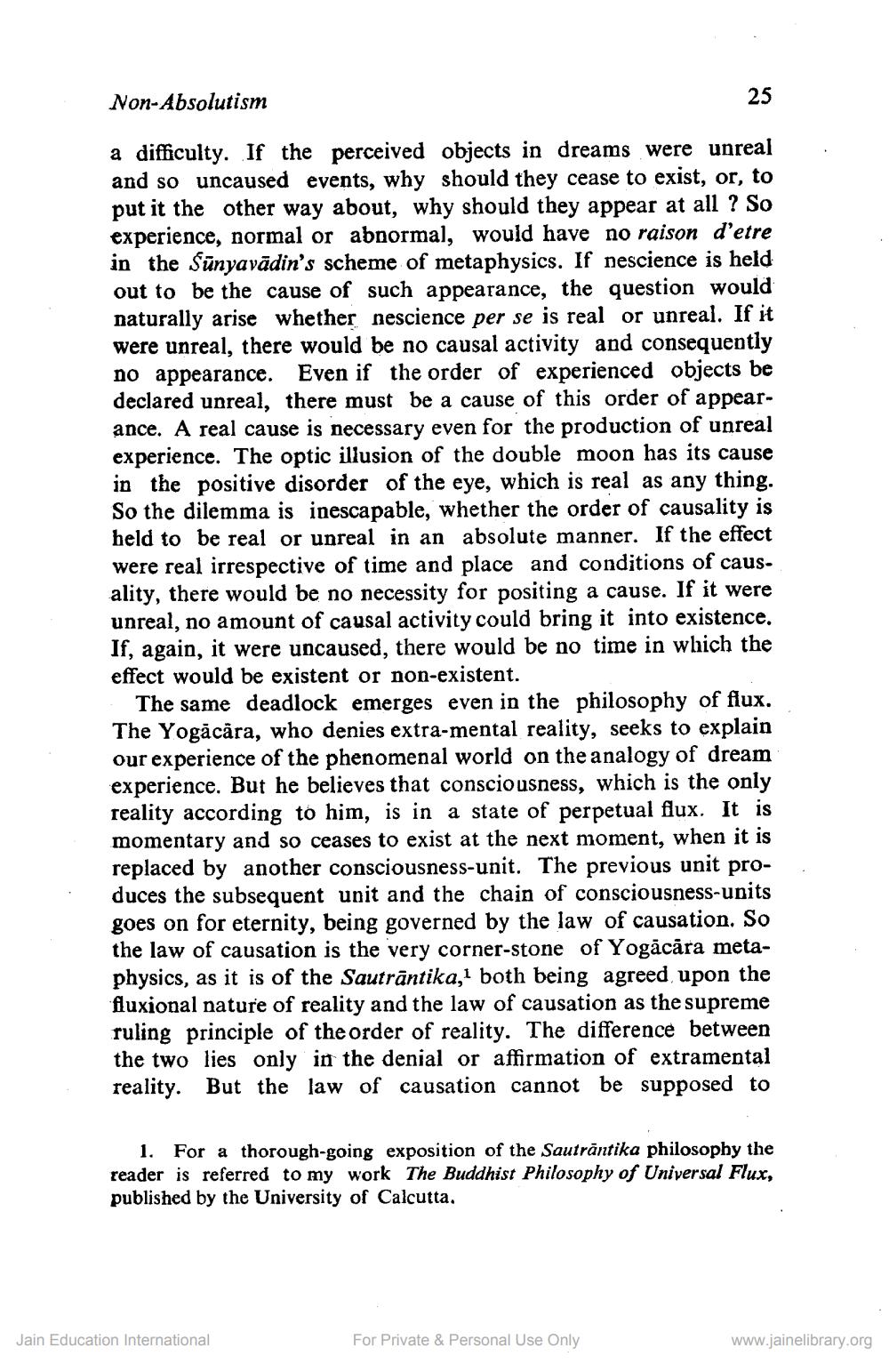________________
Non-Absolutism
a difficulty. If the perceived objects in dreams were unreal and so uncaused events, why should they cease to exist, or, to put it the other way about, why should they appear at all ? So experience, normal or abnormal, would have no raison d'etre in the Sünyavādin's scheme of metaphysics. If nescience is held out to be the cause of such appearance, the question would naturally arise whether nescience per se is real or unreal. If it were unreal, there would be no causal activity and consequently no appearance. Even if the order of experienced objects be declared unreal, there must be a cause of this order of appearance. A real cause is necessary even for the production of unreal experience. The optic illusion of the double moon has its cause in the positive disorder of the eye, which is real as any thing. So the dilemma is inescapable, whether the order of causality is held to be real or unreal in an absolute manner. If the effect were real irrespective of time and place and conditions of causality, there would be no necessity for positing a cause. If it were unreal, no amount of causal activity could bring it into existence. If, again, it were uncaused, there would be no time in which the effect would be existent or non-existent.
The same deadlock emerges even in the philosophy of flux. The Yogācāra, who denies extra-mental reality, seeks to explain our experience of the phenomenal world on the analogy of dream experience. But he believes that consciousness, which is the only reality according to him, is in a state of perpetual flux. It is momentary and so ceases to exist at the next moment, when it is replaced by another consciousness-unit. The previous unit produces the subsequent unit and the chain of consciousness-units goes on for eternity, being governed by the law of causation. So the law of causation is the very corner-stone of Yogācāra metaphysics, as it is of the Sautrāntika, both being agreed upon the fluxional nature of reality and the law of causation as the supreme ruling principle of the order of reality. The difference between the two lies only in the denial or affirmation of extramental reality. But the law of causation cannot be supposed to
1. For a thorough-going exposition of the Sautrāntika philosophy the reader is referred to my work The Buddhist Philosophy of Universal Flux, published by the University of Calcutta,
Jain Education International
For Private & Personal Use Only
www.jainelibrary.org




